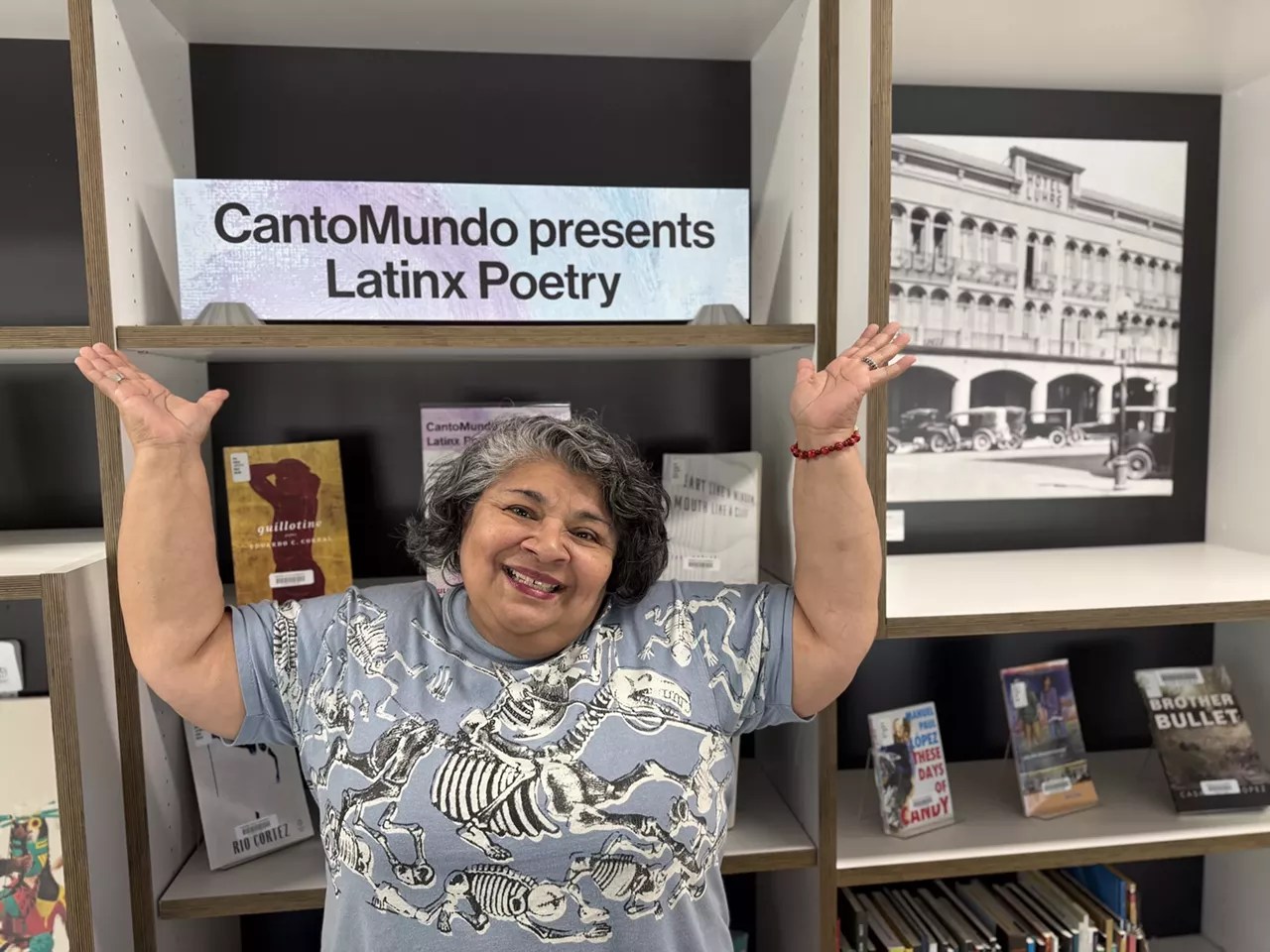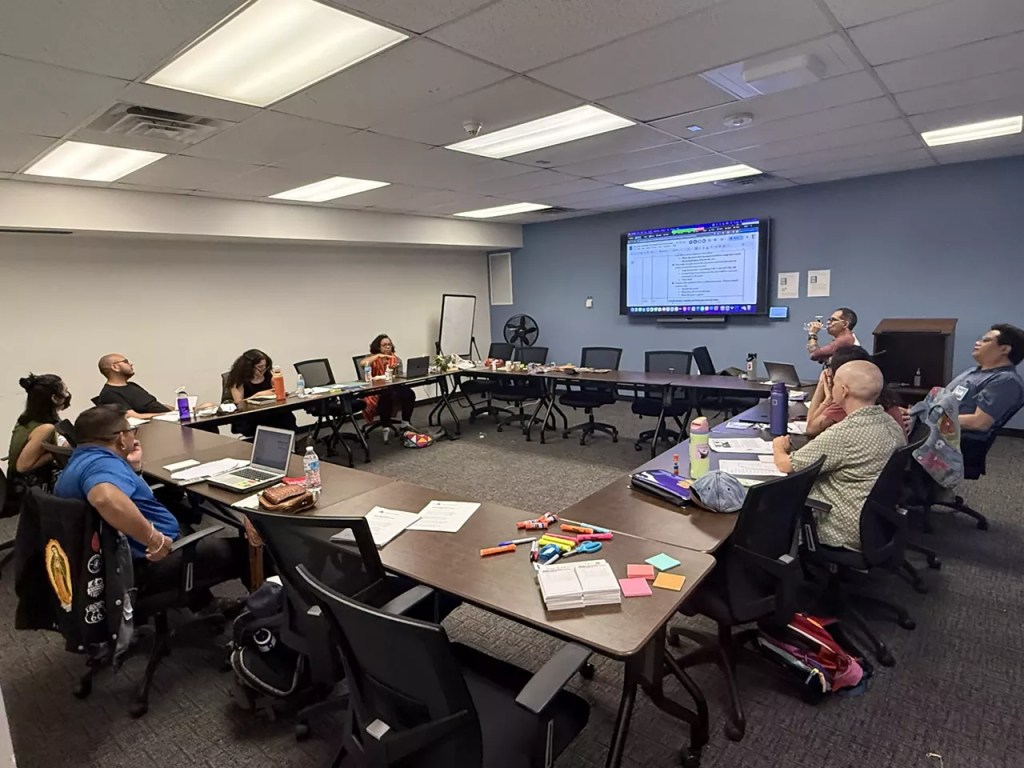
Ofelia Montelongo

Audio By Carbonatix
Belinda Acosta urges everyone to read poetry — of all kinds.
“‘Poetry is not a luxury,’ Audre Lorde said. It can’t stop a bullet or cure cancer, but sometimes, a poem can be the spark that leads you to a good place in dark, even devastating times,” she says.
Acosta is the first full-time director for CantoMundo (“Song-World”), a national Latinx poets organization based in Tempe. Since 2023, it has been housed at the Virginia G. Piper Center for Creative Writing at Arizona State University.
CantoMundo was founded around a kitchen table in 2009 by Norma E. Cantú, Celeste Guzmán Mendoza, Pablo Miguel Martínez, Deborah Paredez and Carmen Tafolla. Since 2010, the organization has hosted annual retreats to connect poets with diverse communities through readings and workshops while partnering with groups that support immigrants, veterans and young writers.
The group’s next event is a collaboration with the writing conference Desert Night, Rising Stars, where CantoMundo will have a book fair and mercado with local vendors. The event takes place Saturday, Oct. 11, from 10 a.m. to 4 p.m. on the patio of the Piper Writers House, 450 E. Tyler Mall, Tempe.
CantoMundo champions Latinx poets across diverse backgrounds and experiences, amplifying voices that have long been overlooked in American poetry. Since its founding, it has built supportive communities and professional networks that help poets thrive and succeed. Members of the program, known as CantoMundistas, are reshaping the poetry landscape through awards, publications and leadership roles. Some past members include Anthony Cody, Carmen Giménez Smith, Francisco Aragón, Felicia Zamora, Ire’ne Lara Silva, Ruben Quesada, Liliana Valenzuela, John Manuel Arias and Julian Randall, among others.
In June, Acosta hosted her first retreat with 16 poets from all over the nation. The attendees were selected through an application process reviewed by graduates, advisory board members and external readers. This year, 10 poets were chosen from 141 applications; the remaining six were returning members.
“Writing in general can be an isolating experience,” Acosta notes. “Retreats like CantoMundo allow writers to find each other, to be inspired or even challenged by one another. It opens the world and, at the same time, the retreat experience can be delightfully intimate.”

Courtesy of CantoMundo
Besides the annual retreat, Acosta works to make poetry accessible for all through open mics and community workshops.
“I’m all about collaboration, particularly in the social and political climate we find ourselves in. I am eager to meet more writers and build connections. We need each other,” she says. CantoMundo recently partnered with Aliento and the Arizona Latino Art & Cultural Center (ALAC) for a “Poetry in Shelter” workshop and open mic during which writers were able to share their work about memories and childhood.
She encourages readers to explore poetry by U.S. Latinx writers and poets from around the world, and to attend readings and slams. The next CantoMundo open mic takes place on Wednesday, Oct. 15. Sign up here.
During Hispanic/Latinx Heritage Month, ethnicity and race are often blended together in a single month. But Acosta reminds us that Latinx communities are not monolithic. “There is not one, singular Latinx experience. My experience growing up in the Midwest is very different from a Latinx person who grew up in the South Bronx, or Miami, or Fresno or Laredo, Texas. Generational differences are also key. I have learned so much from being around much younger writers, whose challenges are different from the ones I faced growing up as a Chicanita in Nebraska,” she says.
Acosta primarily writes fiction, and being surrounded by poets feels like a treat for her. “Poets often say to me, ‘I don’t know how fiction writers can write so much!’ My response is that I am profoundly inspired when a poet can capture the world in a few words. To me, that’s magic,” she offers.
Acosta wants to motivate writers to explore and to develop a writing practice. “It sounds corny, but it’s true: Write badly, write tired, write scared. Eventually, something will come of it, if it’s something that calls you,” she says.